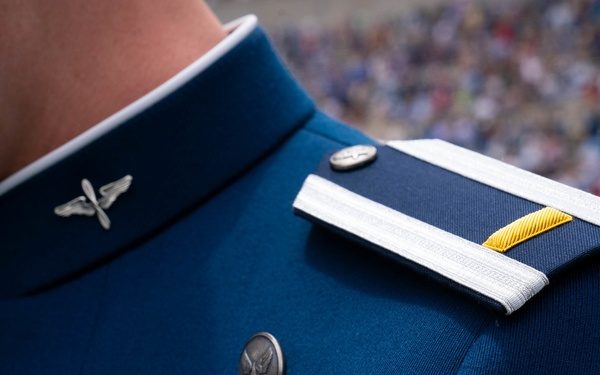Reports of sexual assaults of service academy cadets and midshipmen have risen steadily since 2014. Defense Department officials said Feb. 17 that the record number reported in the most recent academic year could be due to a higher proportion of victims making official reports—something the academies have encouraged.
But the officials won’t know if that’s what happened in 2020-2021, the year with the most reports ever at 131, until 2023. Meanwhile, the most recent data, from 2018, showed the estimated prevalence of sexual assaults, reported or not, also going up—to “a high point,” in fact, said Nathan W. Galbreath, acting director of the DOD’s Sexual Assault Prevention and Response Office.
Of the 131 reports in 2020-2021, 52 were at the Air Force Academy; 46 were at the U.S. Military Academy at West Point; and 33 were at the Naval Academy. Court-martial charges were preferred in 11 of the 131 cases.
Galbreath spoke to members of the press in a briefing Feb. 17, presenting data that showed steep one-year increases in reports of sexual assaults at all three service academies in 2020-2021. But the one-year increases appear artificially steep because the coronavirus pandemic had cut the prior year short.
The Sexual Assault Prevention and Response Office tracks numbers of cases reported from year to year and also surveys academy students in even-numbered years to ask about experiences of sexual assault and harassment. Survey responses help to estimate the prevalence of sexual assault and sexual harassment for a sense of how much really happens rather than just how many cases get reported.
The office couldn’t do a survey in the spring of 2020, when students were sent home because of the coronavirus pandemic, and the 2022 survey happens in March and April, Galbreath said. In 2018, the DOD office estimated that 15.8 percent of women and 2.4 percent of men enrolled in service academies had experienced unwanted sexual contact over the prior year—that was the “high point.”
Official reports of sexual assault across all three service academies rose steadily from 72 in the 2014-2015 acadmic year to 131 in 2020-2021.
“These are actual reports that have come in the door to either sexual assault response coordinators or military criminal investigative organizations,” Galbreath said. He said the office is aware from past surveys that “the vast majority of perpetrators” are reported to be fellow cadets or midshipmen. He mentioned that the DOD had adopted reforms to address sexual assault in 2021.
Galbreath’s presentation given to members of the press said the trend of more sexual assaults reflects “a shared challenge” nationally and at colleges.
Women enrolled in service academies were more likely to experience sexual assault since entering higher education than other college women—28.5 percent estimated among service academy women compared to 26.5 percent among all college women. The same year, DOD estimated 5.8 percent of service academy men to have experienced sexual assault compared to 7.1 percent estimated among all college men.
Galbreath said that in the past year, the academies did “some excellent work with regard to growing their prevention programs,” yet he acknowledges “there are changes that need to occur.” He said the office is working with the academies on “comprehensive prevention plans … that address not only sexual assault but sexual harassment and other behaviors that give rise to sexual assault.”
Galbreath admitted that for now, the plans are “just words on paper” and academy leaders need to make sure the plans are “part of how the academies do business in the future.” He said his office is also working on recommending to superintendents “what programs are doing well, what programs could be fine-tuned to better performance, and what programs could be discontinued because they’re not a good return on investment.”
The Air Force Academy uses a program called EAAA—Enhanced Access, Acknowledge, Act—that’s been found to be “particularly effective,” Galbreath said.
He said sexual assault is “a horrible thing to have to experience, and we are here to help make sure that it happens less often and that victims get the kind of care and support they need to recover.”
Galbreath said the office hasn’t found evidence of “undue influence on the reporting process” at the academies such as found by independent review committees that have investigated other commands.

